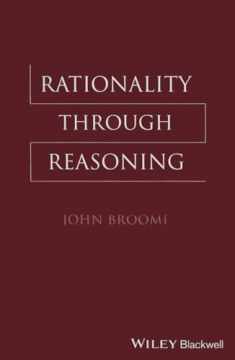
Normative Externalism
Book details
Summary
Description
Normative Externalism argues that it is not important that people live up to their own principles. What matters, in both ethics and epistemology, is that they live up to the correct principles: that they do the right thing, and that they believe rationally. This stance, that what matters are the correct principles, not one's own principles, has implications across ethics and epistemology. In ethics, it undermines the ideas that moral uncertainty should be treated just like factual uncertainty, that moral ignorance frequently excuses moral wrongdoing, and that hypocrisy is a vice. In epistemology, it suggests we need new treatments of higher-order evidence, and of peer disagreement, and of circular reasoning, and the book suggests new approaches to each of these problems. Although the debates in ethics and in epistemology are often conducted separately, putting them in one place helps bring out their common themes. One common theme is that the view that one should live up to one's own principles looks less attractive when people have terrible principles, or when following their own principles would lead to riskier or more aggressive action than the correct principles. Another common theme is that asking people to live up to their principles leads to regresses. It can be hard to know what action or belief complies with one's principles. And now we can ask, in such a case should a person do what they think their principles require, or what their principles actually require? Both answers lead to problems, and the best way to avoid these problems is to simply say people should follow the correct principles.


We would LOVE it if you could help us and other readers by reviewing the book
Book review




